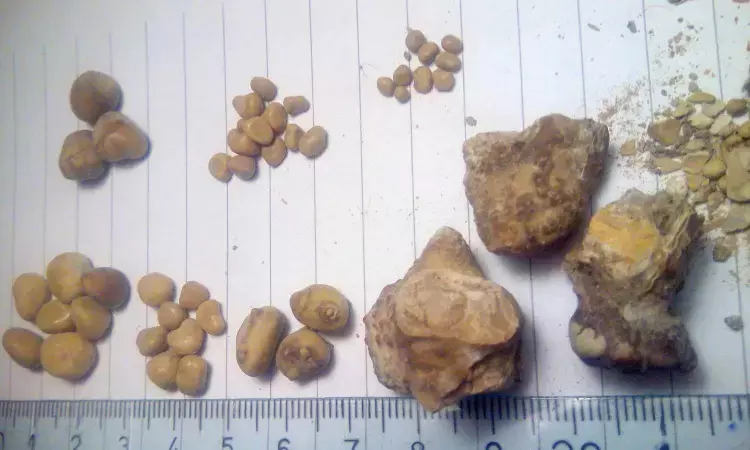- Home
- Medical news & Guidelines
- Anesthesiology
- Cardiology and CTVS
- Critical Care
- Dentistry
- Dermatology
- Diabetes and Endocrinology
- ENT
- Gastroenterology
- Medicine
- Nephrology
- Neurology
- Obstretics-Gynaecology
- Oncology
- Ophthalmology
- Orthopaedics
- Pediatrics-Neonatology
- Psychiatry
- Pulmonology
- Radiology
- Surgery
- Urology
- Laboratory Medicine
- Diet
- Nursing
- Paramedical
- Physiotherapy
- Health news
- Fact Check
- Bone Health Fact Check
- Brain Health Fact Check
- Cancer Related Fact Check
- Child Care Fact Check
- Dental and oral health fact check
- Diabetes and metabolic health fact check
- Diet and Nutrition Fact Check
- Eye and ENT Care Fact Check
- Fitness fact check
- Gut health fact check
- Heart health fact check
- Kidney health fact check
- Medical education fact check
- Men's health fact check
- Respiratory fact check
- Skin and hair care fact check
- Vaccine and Immunization fact check
- Women's health fact check
- AYUSH
- State News
- Andaman and Nicobar Islands
- Andhra Pradesh
- Arunachal Pradesh
- Assam
- Bihar
- Chandigarh
- Chattisgarh
- Dadra and Nagar Haveli
- Daman and Diu
- Delhi
- Goa
- Gujarat
- Haryana
- Himachal Pradesh
- Jammu & Kashmir
- Jharkhand
- Karnataka
- Kerala
- Ladakh
- Lakshadweep
- Madhya Pradesh
- Maharashtra
- Manipur
- Meghalaya
- Mizoram
- Nagaland
- Odisha
- Puducherry
- Punjab
- Rajasthan
- Sikkim
- Tamil Nadu
- Telangana
- Tripura
- Uttar Pradesh
- Uttrakhand
- West Bengal
- Medical Education
- Industry
Larger renal stones or positive urine nitrite tied to delayed discharge after day-surgery PCNL

Renal stone is a very common disease that affects 5.8% of the population in China . Percutaneous nephrolithotomy (PCNL) is considered as the most efficient treatment for renal calculi that are ≥ 2 cm in diameter, providing high stone-free rate and rapid recovery
Larger renal stones or positive urine nitrite tied to delayed discharge after day-surgery percutaneous nephrolithotomy (PCNL) suggests a recent study published in the BMC urology. However reducing surgery time and nephrostomy tubes will help to facilitate recovery.
Results
• The rate of delayed discharge was 14.6%. Independent risk factors for delayed discharge were larger stone burden, positive urine nitrite, longer duration of surgery, multiple nephrostomy tubes
• The five main reasons that caused delayed discharge included psychological reasons, pain, bleeding, urosepsis, and urine leakage.
This study identified some independent risk factors for a hospital length of stay longer than 24 h. Patients with larger renal stones or positive urine nitrite may be at increased risk of delayed discharge after day-surgery PCNL. Reducing surgery time and nephrostomy tubes will help to facilitate recovery.
In all four independent risk factors for delayed discharge after day-surgery were identified: larger stone burden, positive urine nitrite, longer duration of surgery, and multiple nephrostomy tubes. Therefore, patients with large renal stones or positive NIT may be at increased risk of delayed discharge. Shortening surgery time and reducing the number of nephrostomy tubes will help to facilitate recovery.
Reference:
Zhu, H., Liu, B., Karagöz, M.A. et al. Reasons and risk factors for delayed discharge after day-surgery percutaneous nephrolithotomy. BMC Urol 22, 209 (2022). https://doi.org/10.1186/s12894-022-01159-5
Dr. Shravani Dali has completed her BDS from Pravara institute of medical sciences, loni. Following which she extensively worked in the healthcare sector for 2+ years. She has been actively involved in writing blogs in field of health and wellness. Currently she is pursuing her Masters of public health-health administration from Tata institute of social sciences. She can be contacted at editorial@medicaldialogues.in.
Dr Kamal Kant Kohli-MBBS, DTCD- a chest specialist with more than 30 years of practice and a flair for writing clinical articles, Dr Kamal Kant Kohli joined Medical Dialogues as a Chief Editor of Medical News. Besides writing articles, as an editor, he proofreads and verifies all the medical content published on Medical Dialogues including those coming from journals, studies,medical conferences,guidelines etc. Email: drkohli@medicaldialogues.in. Contact no. 011-43720751


